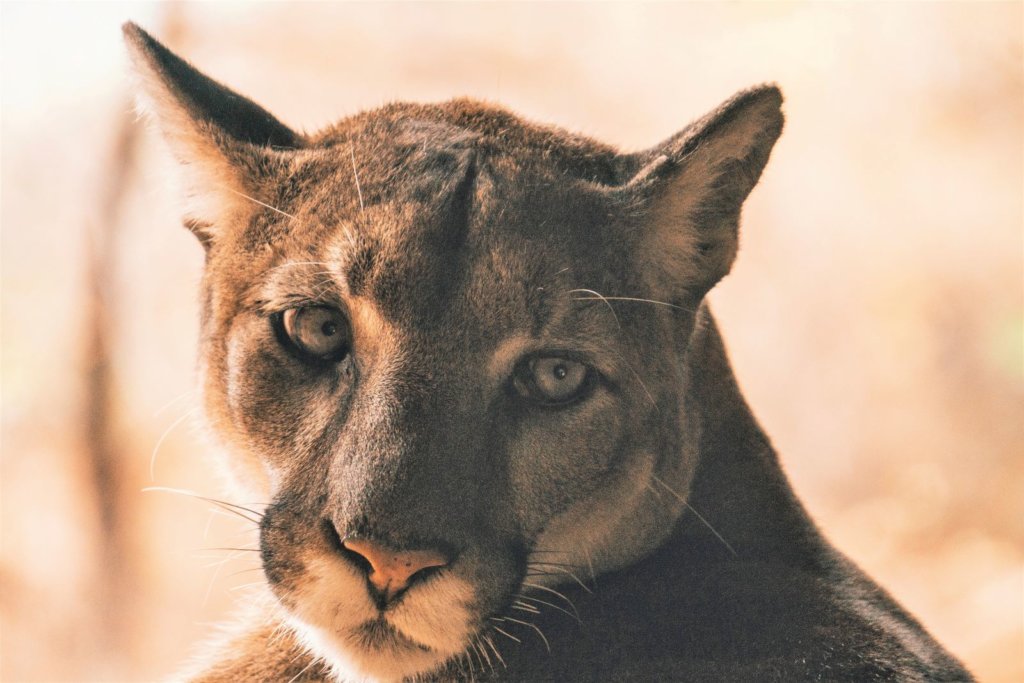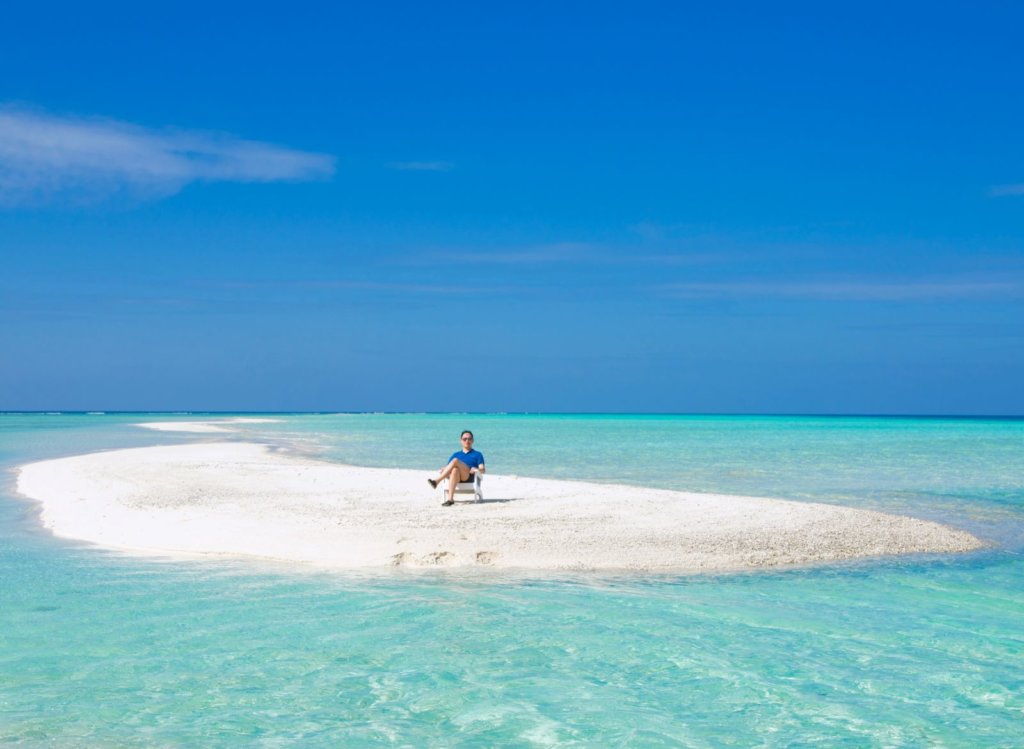I feel unsettled after learning what happened to novelist Salman Rushdie on Friday. If you’re unaware, he was stabbed as he prepared to give a lecture in upstate New York. He suffered wounds to the neck and abdomen and is thankfully on the road to recovery, according to his agent.
It’s believed the attack is in connection to Rushdie’s late-80s book The Satanic Verses, which many Muslims consider blasphemous as it mocked or at least contained mocking references to the Prophet Muhammad and other aspects of Islam. There’s also a character based on the Supreme Leader of Iran and after it was published, Iranian leader Ayatollah Ruhollah Khomeini issued a fatwa, or edict, calling for Rushdie’s death.
I’m upset by multiple things. One, the stabbing occurred during a lecture, an event you would think was safe and peaceful. Two, multiple people were so enraged by words, not actions, words, they sought to kill someone. That’s pretty intense. And problematic because to quote Rushdie, “The moment you say that any idea system is sacred, whether it’s a religious belief system or a secular ideology, the moment you declare a set of ideas to be immune from criticism, satire, derision, or contempt, freedom of thought becomes impossible.”
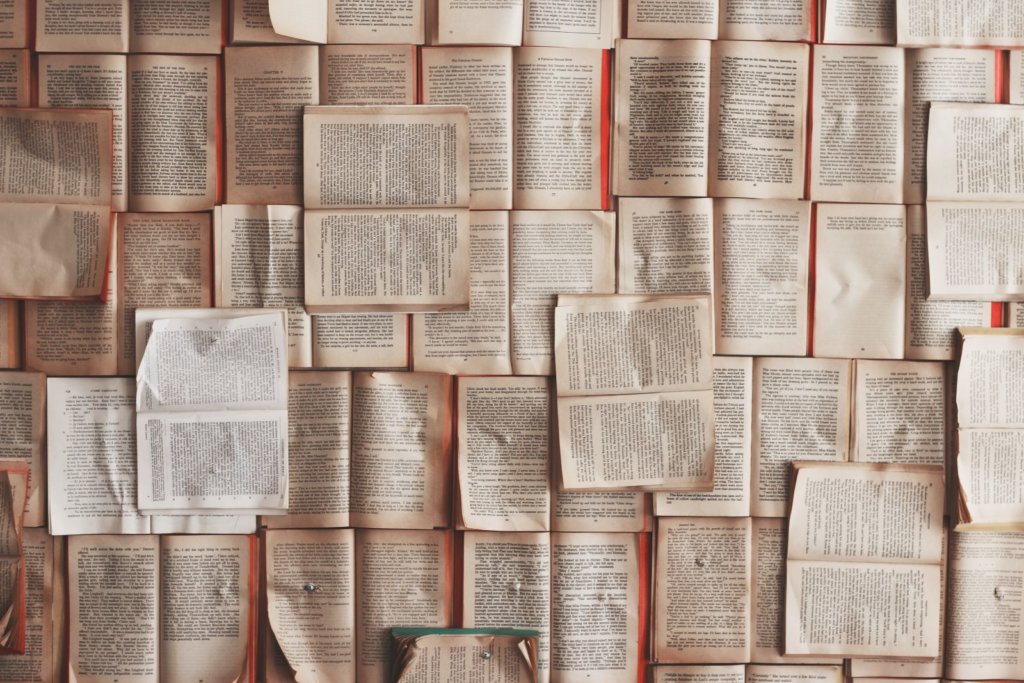
Critical thinking is key. Photo by Patrick Tomasso on Unsplash
Freedom of thought becomes impossible because instead, people sink into dogma. Dogma is thinking without logic or reasoning. And once a person does that, they start doing something because someone else told them to, which is dangerous because they can become easily manipulated by others. They fall prey to schemes and cause real harm to themselves and others.
Dogma can also be the reverse, by the way. It can be disregarding what a certain person, group, or organization says just because of their identity. My spiritual teacher says, “[D]ogma has had an extremely negative influence on ordinary people .… By arousing narrow sentiments, the adherents of dogma hope to fulfill their selfish aspirations … The followers of dogma do not want people to tread the path of rationality … The worst propounders of dogma – the kings of dogma – do not want people to develop mental clarity. They do not want the penetrating illumination of the sun’s light to pierce through the mists of dogma. They do not want people to bathe in the radiant light of the day and stand under the clear, unclouded sky.”
It’s also the case we fall prey to dogma internally, without someone acting as a puppeteer. We see this on social media with “stans,” or super fans that are overzealous and obsessive. They think the person they follow can do no wrong, and when the person inevitably makes a mistake, because, hi, they’re human, some stans dig their heels in and defend the person. People who aren’t super fans will engage in a takedown and explain why the person is trash and should be “canceled” or stop receiving support. From Merriam-Webster, “The reason for cancellation can vary, but it usually is due to the person in question having expressed an objectionable opinion, or having conducted themselves in a way that is unacceptable so that continuing to patronize that person’s work leaves a bitter taste.”
I understand that reaction and sometimes I think it’s warranted. However, this approach misses nuance. Every person is both a hero and a villain. Every person is capable of good and evil. It doesn’t make sense to follow a person as if they are an infallible, perfect human being. I know it’s funny to quote my spiritual teacher again here, but even he said, “Even if a young boy says something logical, it should be accepted, and if the Supreme Creator Brahma says something illogical, it should be rejected as rubbish.”
I agree. Use your brain. Dogma can be alluring because it’s easy and doesn’t require effort, but you have a brain and if you don’t use it, that’s not beneficial for anyone.
I dream of a world where we recognize no idea, person, or belief system is above scrutiny. A world where we don’t accept someone else’s words hook, line, and sinker, no matter who they are. A world where we use logic and reason to make the world a better place and bathe in the radiant light of the day.
Another world is not only possible, it’s probable.
Oftentimes when I hear about terrible news events – fires in Europe, flooding in the U.S., mass shootings, etc. – life feels like too much. There are too many things wrong with the world and how are we possibly going to fix them all? It’s overwhelming to contemplate and easy to fall into despair and cynicism. I see a lot of that online: “We’re all screwed! The world is going to end!” I get it. I’m tempted to fall into that place myself, but then I remember something Rabbi Tarfon, who lived almost 2,000 (!) years ago said: “It is not your duty to finish the work, but neither are you at liberty to abandon it.”
A more poetic way to phrase that courtesy of Rabbi Tirzah Firestone is, “You are not expected to complete the task of repairing the world. But neither are you allowed to put it down.” We’re not here to fix every problem, tackle every big issue. We can’t. It’s impossible. What we’re facing is too vast, but what we can do is be one part of the human relay race.
Have you seen that track event where one runner has a baton and then they pass it to the next person? That’s what I think humanity is like. We’re each carrying a baton that we give to the person ahead of us. We do that over and over again until eventually, humanity is in a different place than it was before. But if we don’t hold up our end of the bargain, if we don’t run with our baton, how can anything change?
I’m reminded of a quote from my spiritual teacher who says, “There are some people who are pessimistic. They say that the society around us is very bleak … Pessimists say this because they have never made any detailed study of human history, nor do they care to. Had they done so, they would certainly be optimistic, because if they had looked carefully at the symptoms of pause, they would have realized that significant preparations were being made for the subsequent phase of speed. So under no circumstances should human beings be pessimistic. That is why I am always an incorrigible optimist, because I know that optimism is life.”
I’m not Pollyanna over here, I know what’s happening in the world and I know it’s incredibly challenging. But I also recognize it’s my duty as someone who is alive right now to not put down the task of repairing the world. What that means for me is different than what it means for you, but we are all here for a reason. We are all alive at this time in this life not merely to take up space but to play a role in this great drama.
Hafiz said it so beautifully in the poem “The Place Where You Are Now” that I’m going to quote a portion of:
“This place where you are right now
God circled on a map for you.
Wherever your eyes and arms and heart can move
Against the earth and the sky,
The Beloved has bowed there –
Our Beloved has bowed there knowing
You were coming.”
The Beloved knew we were coming to be a part of a giant human relay race where we do one thing that someone else carries forward, that they carry forward, that someone else picks up ad infinitum. But it’s up to us to say “yes” to the task.
I dream of a world where we recognize we aren’t going to solve all the world’s problems ourselves. Instead, we are only one part of the solution like a human relay race. A world where we maintain optimism in the face of extreme difficulties because we’ve studied human history. A world where we understand we all play a part in repairing the world.
Another world is not only possible, it’s probable.
For a long time, I considered myself safe only if there was no presence of danger. That makes sense if you look up the word “safe” and “safety” in the dictionary. Merriam-Webster defines safe as “secure from threat of danger, harm, or loss.” That’s how I’ve tried to live my life: not running with scissors, wearing my seatbelt, looking both ways when I cross the street, etc. It’s been my prime objective to avoid danger. However, if you live long enough, you soon realize you can’t avoid danger.
To be alive means to encounter threats. They could be in the form of other people, like a mugger or a drunk driver; a wilderness threat like a snake or a wasp; or a natural disaster like a flash flood, fire, or earthquake. There are more threats, of course, I’ve just named a few, but the point is, no one can live in a safety bubble. It’s not possible. How then do we keep ourselves safe? What does safety even mean in that context?
To go back to etymology, the word “safe” was derived from the Old French word sauf, which means protected and watched over. I like that definition because it means even in dangerous situations, I can be safe because I’m protecting myself, I’m watching over myself. In other words, I’m making good choices to ensure my eventual safety. That could be slowly backing away from a mountain lion, carrying pepper spray to ward off an attack by a person, or evacuating my home in the case of a fire. Just because there’s risk of harm doesn’t mean harm is inevitable.
When it comes to safety, that’s the piece that’s been missing for me. I discount my ability to take care of myself, to show up for myself in dangerous situations. Instead, I’ve believed the worst possible thing will happen and I’m helpless to prevent it. Um, not true. I keep a cool head in stressful situations, choose wisely, and prepare as much as I can in advance, like looking up what to do if encountering a mountain lion. That’s called keeping myself safe.
For someone like me who is perpetually worried about safety, who’s scared of danger, and tries to outsource my safety to someone else sometimes, recognizing the power and ability I have within me is huge. That may not be you. You might be a person who already feels confident in yourself and your abilities, but for the person who identifies with me, the anxious scaredy-cat, I hope you hear me when I tell you: You can do this.
I’m reminded of the quote by A.A. Milne, author of Winnie the Pooh who said, “You are braver than you believe, stronger than you seem, smarter than you think, and loved more than you know.” Yes. We are. I don’t know about you, but I often sell myself short. I don’t want to do that anymore. Having an inferiority complex is not accurate because as my spiritual teacher says, “A person must not suffer from an inferiority complex, because that person and his or her friends and siblings are all the progeny of the same Progenitor. They come from the same origin.”
That means I’m just as capable as anyone else. That means I absolutely have the power within me to protect myself, to keep myself safe. Not because I’m avoiding danger at all costs, but because I’m making choices in the moment to minimize risk. That matters. A lot.
I dream of a world where we recognize we are safe not when we avoid danger, although that may be a part of it, but rather due to what happens after the threat arises. A world where we remember we have a force within us, an instinct to keep us alive. A world where we understand we are capable people and we create safety for ourselves.
Another world is not only possible, it’s probable.
The other week I started a slow slide into depression because I ran out of resveratrol, a supplement I take to support dopamine production. In a quest to feel happier, I descended into an internet rabbit hole and of course a podcast from Glennon Doyle about how to live a little happier caught my eye, particularly because she featured Dr. Laurie Santos. Dr. Santos is a happiness expert and teaches THE most popular class at Yale in 300 years: Psychology and the Good Life. It’s been adapted into a free online course taken by more than 3.3 million people to date.
Dr. Santos has done a ton of research on happiness and discovered the way we go about achieving happiness is all wrong. We think happiness is about our circumstances – the job, the relationship, the house, etc., but in practice, science shows that’s not true. It’s not true because the brain gets used to anything – good and bad. For instance, when you buy a new iPhone, it’s fun for a while because it has cool new features, a better camera, etc., but then you just get used to it. It’s not the exciting, shiny thing it once was. It’s just your phone.
“We kind of get that with material objects, but we forget that with big life changes,” Dr. Santos said during the podcast. “You get this new promotion, or you get a new salary, or you get into a relationship. At first, yeah, it’s amazing, but then over time, you just get used to it. And this is hedonic adaptation; all the best things in life, we kind of just get used to over time.”
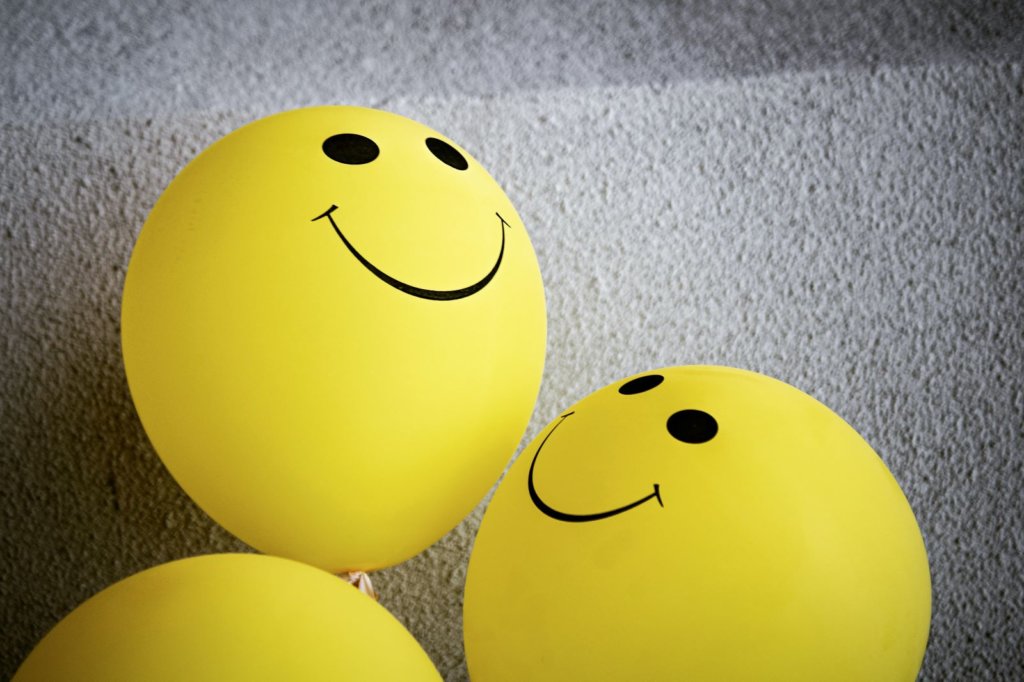
We can be happier. Photo by Tim Mossholder on Unsplash
Not only do we get used to the best things in life, not only do we forget how easily we acclimate, we also have a built-in mechanism telling us we’d be happier with more. That’s what dopamine, the happiness molecule, seeks. More Instagram followers, more gadgets, more money, more. In my spiritual philosophy, we say every human being has a thirst for limitlessness. Even when a person has so much, they still want more. Clay Cockrell is a wealth psychologist to the 0.0001% and found they are miserable because instead of being satisfied with enough, they’ll say, “I have $500 million, but I’m not a billionaire.” The millionaire wants to be a billionaire and a billionaire wants to be a trillionaire.
My spiritual teacher says:
“However great may be the wealth of attainment, it cannot satisfy the hunger of the human mind, which always yearns for unlimited happiness. Those who run after wealth and reputation, name and fame, can never be happy unless they can attain an infinite quantity of the same. But because the world itself is finite, how can the objects of this world be infinite? Besides, it is not materially possible to acquire objects of an unlimited quantity. So worldly achievement – even if it is the acquisition of the whole globe – is neither unlimited nor eternal.”
What then is the solution? How can you be happier right now and placate dopamine? First off, Dr. Laurie Santos says to change your reference point so that you look down, not up. Instead of comparing yourself to someone who is better off than you, compare yourself to someone who is worse off. That also elicits gratitude, which increases happiness.
Santos also says we’re terrible at prioritizing the things that make us happy. When we’re stressed with work, the first thing we drop is a yoga class with a friend, but socializing makes us happier. When we’re tired, we scroll Netflix, but we’d be better off playing on Duolingo, a language-learning app. Furthermore, happiness is a daily activity, not an arrival, which means you can’t write a gratitude list once a year and feel happier until the end of time. How we operate on a day-to-day basis affects our happiness overall.
Dr. Santos has more happiness tips and research on her podcast, the Happiness Lab. However, something happiness experts often miss is in order to feel truly happy and at peace, you must include some sort of practice that quenches your thirst for limitlessness. For me, that means meditating on an infinite, loving consciousness. And wouldn’t you know it, I’m happier when I do.
I dream of a world where we realize happiness is a daily activity, not a place we arrive. A world where we understand the material world will never satisfy our desires. A world where we point ourselves to something greater than us. A world where we do what we can to be happier now.
Another world is not only possible, it’s probable.
As we celebrate Dr. Martin Luther King Jr.’s birthday here in the U.S., I keep thinking about one of my favorite quotes of his. There are many because the man was an eloquent speaker, but in 1963 he said, “Injustice anywhere is a threat to justice everywhere. We are caught in an inescapable network of mutuality, tied in a single garment of destiny. Whatever affects one directly, affects all indirectly. Never again can we afford to live with the narrow, provincial ‘outside agitator’ idea. Anyone who lives inside the United States can never be considered an outsider anywhere within its bounds.”
It’s an interesting concept, and one that continues to be relevant, this notion of “outsider” and how we apply justice to anyone we perceive to be an outsider. Did you know it’s been 20 years since the first detainees arrived at Guantánamo Bay? And that those prisoners were subjected to torture? Only 39 prisoners remain and more than a dozen of them have yet to face charges. They have been dubbed “forever prisoners” by some Democrats. The cost of operating the prison is about $13 million per prisoner every year, according to a Business Insider article! Are you freaking kidding me? I could think of a lot of better uses for $13 million per person.
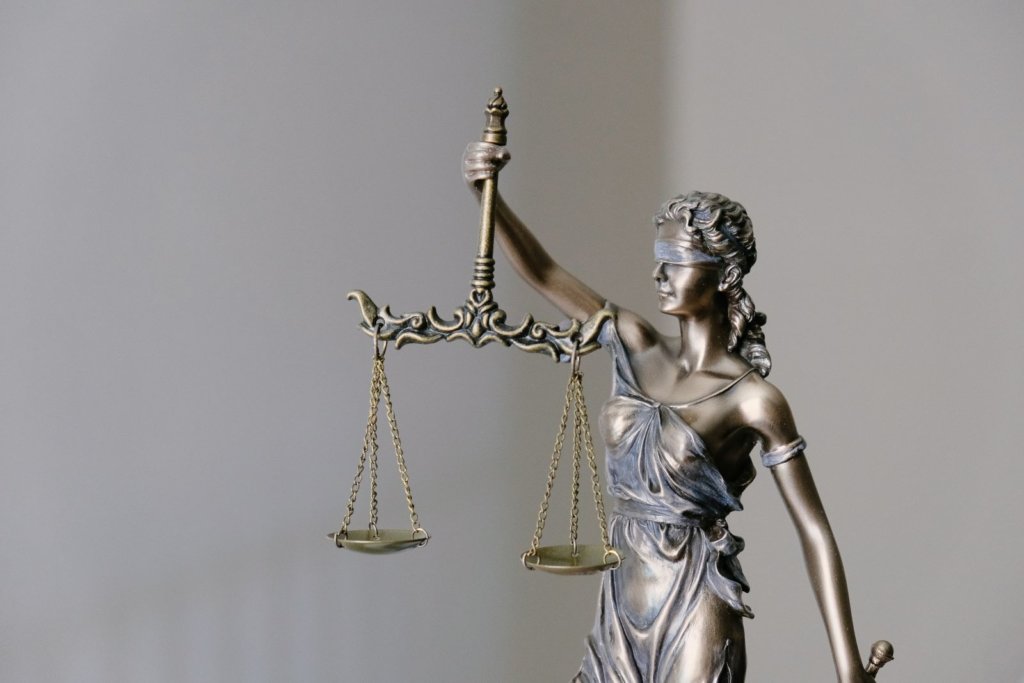
Justice is supposed to be blind, but is it? Photo by Tingey Injury Law Firm on Unsplash
And even if you’re saying, “Yeah but they’re terrorists! They need to be held captive!” The cost to house a single prisoner in California is more than $75,000, according to the LA Times, which is still more than a year at Harvard. Clearly there’s a lot of injustice, a lot of mismanaging funds, and yet a small group of people continue to let incidents like these occur.
It brings to mind an excellent article I read on LitHub by Rebecca Solnit posted in 2018 about how there’s a myth surrounding the “real” America. She wrote:
“[I]n the news and political life, we’re still struggling over whose story it is, who matters, and who our compassion and interest should be directed at.
“The common denominator of so many of the strange and troubling cultural narratives coming our way is a set of assumptions about who matters, whose story it is, who deserves the pity and the treats and the presumptions of innocence, the kid gloves and the red carpet, and ultimately the kingdom, the power, and the glory. You already know who. It’s White people in general and White men in particular, and especially White Protestant men, some of whom are apparently dismayed to find out that there is going to be, as your mom might have put it, sharing. The history of this country has been written as their story, and the news sometimes still tells it this way – one of the battles of our time is about who the story is about, who matters and who decides.”
Precisely. So much of justice and injustice is tied to who matters and who decides. If Black people don’t matter, then it’s fine to kill them in the streets. If terrorists don’t matter, it’s OK to torture them. But who exactly is deciding they don’t matter? And why is that those people are in charge? The reality is the White population in the U.S. is declining and other races are increasing. Where I live, the majority of people are not White. To my mind, that means decisions being made about policies and procedures should take into account that diversity, should recognize this country belongs to everyone who lives here. In essence, to bear in mind what Dr. King mentioned so long ago: that injustice anywhere is a threat to justice everywhere.
I dream of a world where we treat all human beings with love and respect. A world where we value justice not only in word but in action. A world where we celebrate and protect human diversity while also seeking to transcend divisions. A world where we honor Dr. King’s legacy by bringing his dream into reality.
Another world is not only possible, it’s probable.
Have you heard the expression, “Expectations are premeditated resentments?” I wouldn’t say that’s wholly true for me because my expectations aren’t about other people, but they have certainly been premeditated disappointments. For instance, I woke up on the morning of my most recent birthday and cried because I’m not at all where I thought I’d be at this age. Yes, the big things like married, but also I thought by this age I’d be living in a more spacious apartment and have signed a literary agent. But I haven’t.
Every year I inflict this kind of disappointment on myself. I make a goal where I say, “By this time next year I’ll ______.” And then inevitably what I set out to achieve doesn’t come to pass because I’m not in control of every aspect of my life. If we’re using the theater metaphor that all the world’s a stage and we’re merely players upon it, I’m instead operating under the assumption I’m the director. As the director, I have a say in what happens upon the stage, but as much as I’d like to be the director, I was cast as an actor. And that means it doesn’t make sense to have expectations for how my future will unfold.
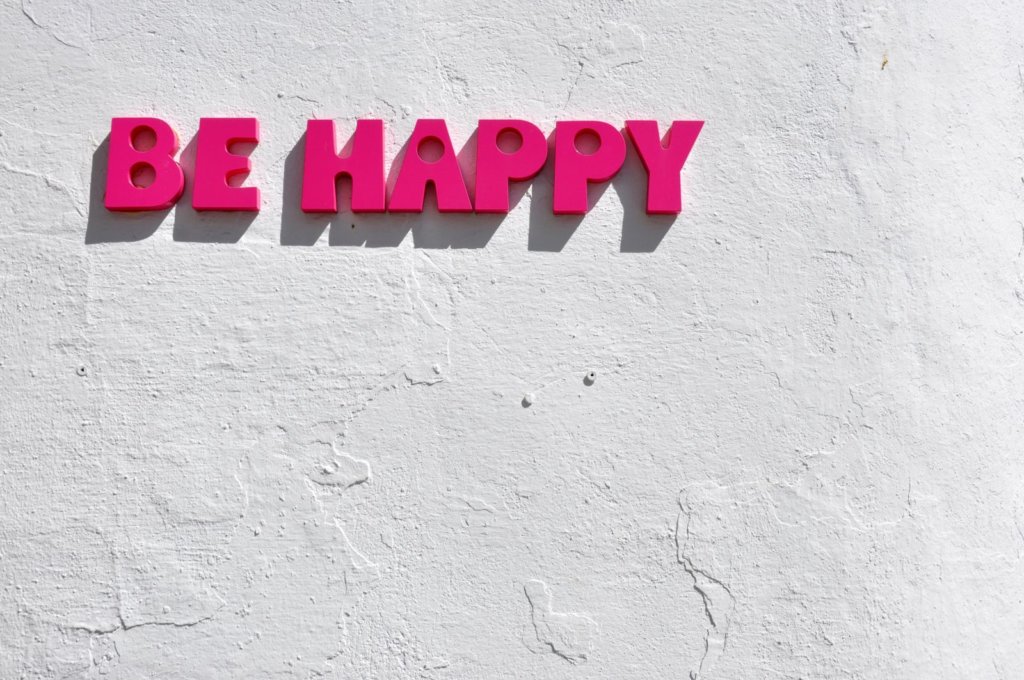
I would like to follow this command. Photo by Alex Block on Unsplash
Having a goal is great, but setting a timeline is not. How can I possibly predict what will happen in the future? I can’t. That’s also the chief complaint of every crowd-funded campaign I’ve ever backed. The creator sets up a timeline and says, “You’ll receive your water pitcher in six months,” or whatever and when that time comes and goes, people get angry and impatient. The timing is almost always off because the creator ran into unforeseen circumstances. It’s the same for me — I’m forever running into unforeseen circumstances.
What if instead of giving goals a deadline, I work toward them and just let my life unfold? What if instead I accepted and enjoyed what’s here, now? Jodi Picoult speaks to this in her novel Nineteen Minutes when she writes, “There were two ways to be happy: improve your reality, or lower your expectations.”
I already work incredibly hard to improve my reality so maybe now is the time to lower my expectations, or better yet, not have any at all. What’s funny is when I googled how to do that, much of the search results focused on lowering expectations in regards to other people and not much about lowering the expectations a person has for themselves. I suspect that because in the U.S. anyway, we have high expectations for ourselves. We believe if we dream it, we can achieve it and on our timeline to boot. You just have to think positively! Create a vision board! Hire a life coach! That all has a place, but so does something every spiritual teacher talks about: surrender.
My spiritual teacher says, “Human beings and other created beings perform a multitude of actions. The ultimate action, however, is … total surrender.” Total surrender means aligning my will with higher power’s will. Total surrender means recognizing I am an actor in this world, not the director. Total surrender means no longer placing expectations upon myself for when something will be accomplished because that only sets me up for disappointment and this year my goal instead is to be happy.
I dream of a world where we remember the recipe for happiness is to improve our reality or lower our expectations. A world where we remember we are the actors upon the stage of life and not the directors. A world where we understand in order to truly feel happy, we have to let go and enjoy what arises when it arises.
Another world is not only possible, it’s probable.
This weekend a friend told me his friends are getting into cryptocurrency so they can make a lot of money. My response was, “So they can do what? Retire early and satisfy every pleasure they have? Or build a rocket ship into space while there are people literally starving to death?”
I mean, I understand the impulse. Our society lauds the accumulation of wealth. When Jeff Bezos launched into space, morning shows allocated 212 minutes to discussing it. In contrast, they spent 267 minutes for all of 2020 discussing the climate crisis even though the climate crisis is a far bigger story that impacts the entire world. In the U.S. anyway, we treat money like it’s the most important thing, as if being wealthy is the greatest accomplishment of a person’s life. We see this not only in media coverage, but also in how wealthy people are allowed to become richer. We aren’t taxing the rich to fund things like schools, roads, bridges, healthcare, or anything that would benefit the many. No. Instead we’re letting people accumulate wealth unchecked so they can visit space for 10 minutes on the backs of people who are working in inhumane conditions.
I’m not someone who thinks money is the root of all evil. I don’t think we should go back to a time of bartering for all our needs. Money makes life more comfortable, absolutely, and being poor is one of the hardest, most stressful situations a person can find themselves in. But why are some people allowed to make millions in one day while others are working multiple jobs just to cover all their expenses? And furthermore, what’s the point of making so much money you can buy a private island?
My spiritual teacher says:
“A mind, driven by many psychic [desires] is the prisoner of innumerable predicaments. In such a condition, the human mind becomes extroversial, multi-directional, weak, and static. It is propelled by the principle of selfish pleasure, which leads it down the path of counter-evolution. … As people have to satisfy their unrestrained psychic [desires] with limited objects of wealth, they often create interpersonal and inter-group conflicts. The collective psychology arising from many objectified human minds gives rise to social inequality, economic exploitation, political repression, religious bigotry, cultural perversion, and the all-round degradation of the individual and society. Crude psychic [desires] cause the degeneration of individual and collective mind, and thus bring about the downfall of the society.”
I’d say we’re seeing that now. Society certainly seems to be moving in a downward direction in many regards. So what’s the point of life if it’s not to get as much wealth as possible and satisfy every selfish pleasure that enters your brain? Take it from someone who is rich and famous, Jim Carrey, who said, “I hope everybody could get rich and famous and will have everything they ever dreamed of, so they will know that it’s not the answer.”
The answer instead is to eradicate all inequalities and contribute to society in such a way that we’re supporting each other, taking care of each other. The answer is to live in this world, to ensure everyone has their basic needs met, but also recognize there’s more to being alive than material gain. Ultimately what we’re seeking is infinite pleasure, infinite happiness, and that only comes from something that is also infinite: communing with the loving consciousness that pervades this universe.
I dream of a world where we understand despite what much of society tells us, the point of life is not to get rich and famous. A world where we realize satisfying every selfish pleasure only leads to our downfall and the downfall of society. A world where we appreciate material goods, but also recognize ultimately life is more enjoyable if we serve society and commune with spirit.
Another world is not only possible, it’s probable.
Anxiety kicks up for me when I start to contemplate the future in a negative way. When I imagine worst-case scenarios like all my clients will end our relationship, I’ll drain my savings, and I’ll never move out of this one-bedroom apartment. It’s not a pleasant rumination. The answer seems simple, doesn’t it? Stop imagining a negative future.
Instead of imagining a negative future I could imagine a positive future. I could also do that thing spiritual teachers everywhere advise: be present. The latter is what’s coming up for me today. In fact, there’s a quote I like from a daily reader and this morning I planned to thumb through the entire book until I found it, except no need. I opened the book to exactly the quote I had in mind! It’s by Pindar who said, “Do not peer too far.” The affirmation in my daily reader is, “For today, I neither want to know the future, nor to live in it before it arrives.” Truthfully, I do want to know the future, but only if the future is line with my dreams, not my nightmares. However, the message for today is, “Be where your feet are.”
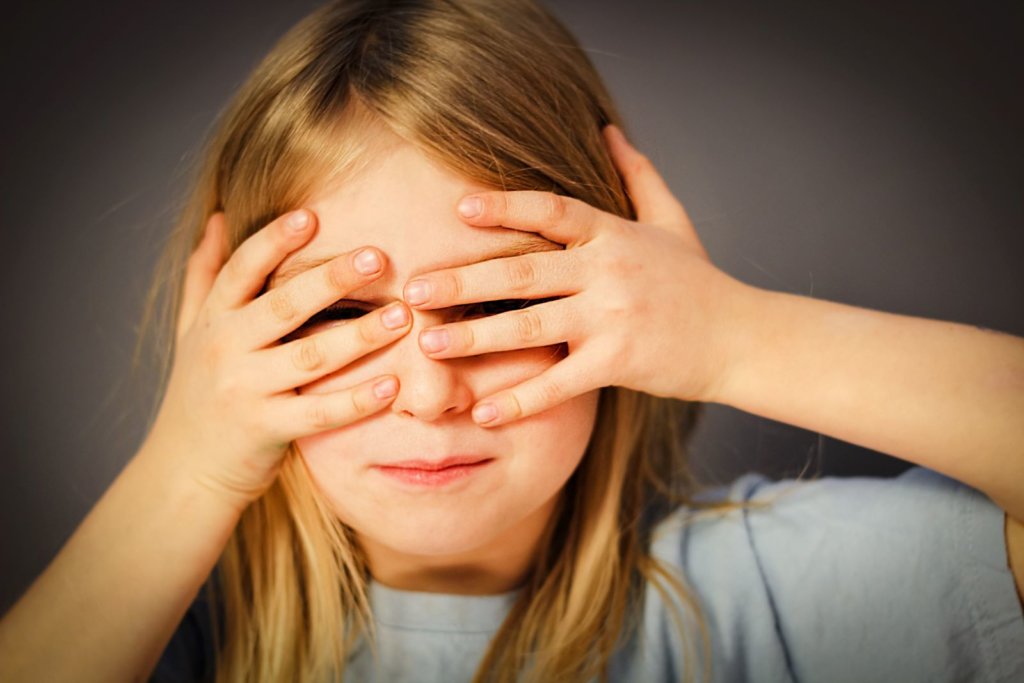
Keep a little mystery. Don’t look too far. Photo by Katie Gerrard on Unsplash
In the present moment am I OK? Am I able to pay my rent? Is there food in my fridge? Do I have a place to sleep? Am I getting enough connection? If the answer to all those questions is “yes,” I’d say I’m doing alright. What also helps me become grounded is to use my senses. What are five things I can see? Four things I can feel? Three things I can hear? Two things I can smell? One thing I can taste? Being in my body brings peace because the body only knows the here and now, nothing else.
It’s also helpful to remind myself life can be surprising and delightful. For instance, in the middle of writing this, a friend called me up and asked me if I’d like to go to an outdoor party in the redwoods with a pickup in 45 minutes! I said yes because why the heck not? I love redwoods and I haven’t been to a party in ages. If I knew the future, I wouldn’t be surprised or delighted by the spontaneous turn of events, and spontaneity goes hand in hand with joy, according to research.
Eating lunch sitting among redwoods and then lounging in a hammock afterward while I watched the wind blow needles off the trees was pretty delightful, I must say. And it’s not what I had planned for my day, which made it all the more enjoyable. Eckhart Tolle speaks to this in his book The Power of Now when he writes, “As soon as you honor the present moment, all unhappiness and struggle dissolve, and life begins to flow with joy and ease. When you act out the present-moment awareness, whatever you do becomes imbued with a sense of quality, care, and love — even the most simple action.”
So that’s what I’m doing today, living in the now, being present, reminding myself the future is an ever-evolving situation that I’m not able to predict anyway. But this right here I can do something about, and for today, that means not peering too far.
I dream of a world where we realize looking too far ahead will likely cause anxiety and instead we stay present. A world where we understand the present moment is a point of power. A world where we remember life can be surprising and delightful, but only if we let it.
Another world is not only possible, it’s probable.
Whenever I’m waiting on checks, like I am now, I think, “Maybe I should get a part-time job,” and then I apply for part-time jobs and never hear anything, not even a “no.” Inevitably I get reassurance from the universe that I’m doing exactly what I’m supposed to be doing either because I’m contacted by a potential new client, I accept another freelancing assignment, or I receive a sign. This past week the universe sent me all three.
What is the sign the universe sent me? The animal totem giraffe. A giraffe was mentioned in a book of essays I’m reading, during a Zoom meeting someone held a small giraffe toy in her hand, and giraffes were mentioned in another book I’m reading. Sometimes animals are just animals, but in this case at the sight and mention of “giraffe,” I felt a zing in my heart and my brain seemed to zero in on the word so I know it’s a sign and not a mere coincidence.
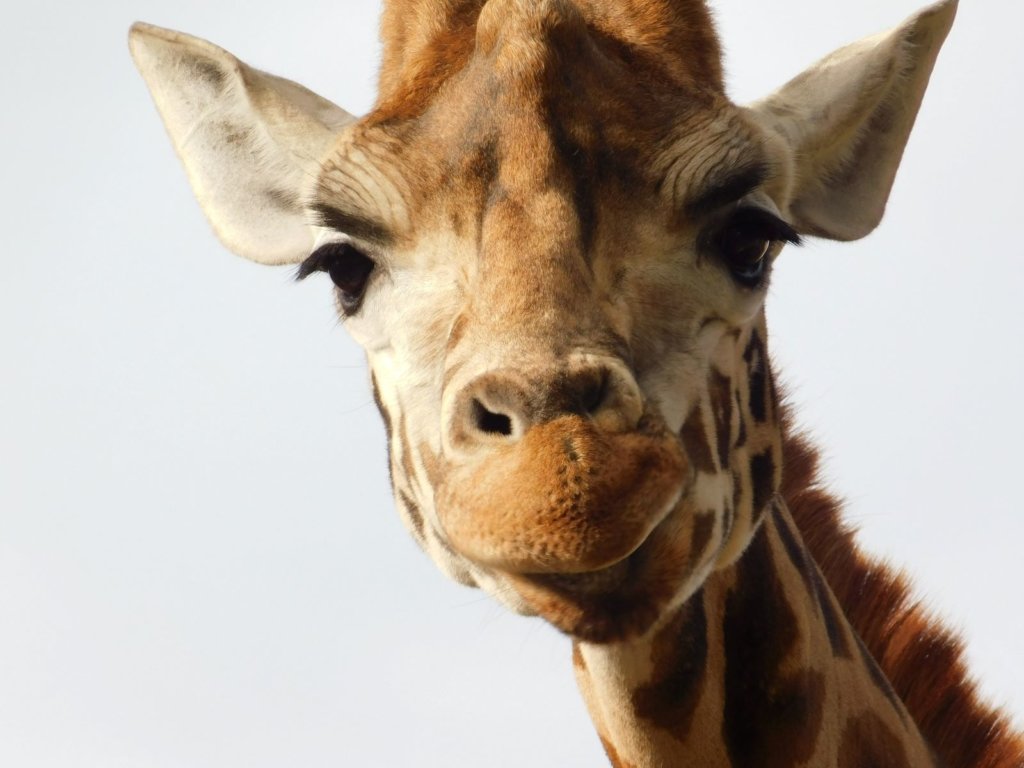
Giraffe wants to say hi. Photo by Photo Lily on Unsplash
There are numerous interpretations for the symbolism behind giraffes, but the one I liked the best comes from uniguide.com where Kristen M. Stanton writes, “The giraffe totem is a helpful symbol for reminding yourself that what makes you unique is one of your gifts to the world. It is your unusual qualities and life experiences that will help you to fulfill your purpose on Earth.”
If that isn’t the most perfect message to receive when I’m doubting myself and my abilities, I don’t know what is. Just as I think I should throw in the towel on my business, the universe tells me, “No. Your uniqueness, what makes you ‘you’ is needed in this world. Keep going.” While this post is about me, I’m pretty sure my experience is a universal one. How many times do we compare ourselves to someone else and find ourselves lacking? How frequently do we feel like we’re not doing the “right” thing because our life doesn’t look like someone else’s? Giraffe reminds us our uniqueness is a gift to the world. That it’s precisely our personal qualities and life experiences that matter and are worthwhile.
The concept is also in line with my spiritual philosophy. The central tenet of my spiritual practice is the universe is coming to know itself through me and you. We are the human expression of divinity. We are not human beings having a spiritual experience, but spiritual beings having a human experience, to quote Pierre Teilhard de Chardin.
Other people who speak to this idea eloquently are Brian Swimme and Mary Evelyn Pope who write in their book Journey of the Universe, “[J]ust as the Milky Way is the universe in the form of a galaxy, and an orchid is the universe in the form of a flower, we are the universe in the form of a human. And every time we are drawn to look up into the night sky and reflect on the awesome beauty of the universe, we are actually the universe reflecting on itself. And this changes everything.”
I am the universe reflecting on itself. The skills and talents I possess are gifts to be utilized. I am here to share those gifts and I’m privileged enough to be in a position to make money from them. The universe keeps reminding me, “Yes, you should be writing. Yes, that includes ghostwriting. No, working for someone else isn’t in your best interest.” Sometimes I remember that on my own, but sometimes I need encouragement. And this week that encouragement came in the form of a giraffe.
I dream of a world where we understand we are each unique, talented, and special. A world where we understand we were not meant to fit in because we are the individualized expressions of cosmic consciousness. A world where we realize we are the universe coming to know itself through us and that means we are wonderful just as we are.
Another world is not only possible, it’s probable.
I keep thinking about an essay I read in the book All I Really Need to Know I Learned in Kindergarten by Robert Fulghum. He writes about how he lived at the dead end of a dead-end street, two blocks long, at the bottom of a hill in north Seattle. At the top of the hill, two big yellow and black signs declared: STREET ENDS. And at the end of the street where Fulghum resided, another big sign with stripes and reflectors stated the obvious: DEAD END.
You could see that “DEAD END” sign a long way off – in other words, the dead end didn’t sneak up on you. However, what’s so remarkable is people drove down the street anyway and seemed to be baffled when the street did, in fact, end.

These signs are pretty obvious . . . if we accept them. Photo by Gabriel Soto on Unsplash
Fulghum writes:
“Not just part way, mind you. Not just to where the reality of the situation cleared up. No, sir. They drove all the way down, right up to the sign, the big black one with stripes, the one that said DEAD END.
“And they read that sign two or three times. As if they were foreigners and had to translate the English. They looked on either side of the sign to see if there was a way around it. Sometimes they sat there for two or three minutes adjusting their minds …. There was no pattern. All kinds of vehicles, all kinds of people, broad daylight and pitch dark. Even a police car a couple of times. And once a fire truck.
“Innate skepticism or innate stupidity? I confess I do not know. A psychiatrist friend tells me it’s a sample of an unconscious need to deny – that everyone wants the road or The Way to continue on instead of ending. So you drive as far as you can, even when you can clearly read the sign. You want to think you are exempt, that it doesn’t apply to you. But it does.”
His last two lines especially strike me. We want to think we are exempt, that whatever we’re confronting – a dead-end street, a deadly virus, whatever – doesn’t apply to us. But it does. I’d wager the majority of us want to feel special. We want to be right, to know the truth, and even when there’s evidence demonstrating we’re wrong, we can’t accept it. Why is that? I think one reason is U.S. culture doesn’t have many examples of people saying, “I don’t know.”
Instead of saying, “I don’t know,” we make something up, we pretend to know. We try to save face versus practicing humility and admitting, “I don’t know,” or even, “Maybe I’m wrong.” Who says maybe I’m wrong these days?!? I can’t remember the last time I heard in a public space someone open to the possibility they don’t know everything. It’s as if due to the internet and having so much knowledge at our fingertips we’re loathe to say, “I don’t know” or “I could be wrong.”
Also wrapped up in “I don’t know” is fear, in my opinion. My spiritual teacher says, “Humans do not fear to tread a known path, but they always hesitate and fear to travel unknown paths.” Sometimes those unknown paths are intellectual ones. It’s far easier to cling to a thought or belief you learned early on and is corroborated by friends and family than to change your mind and believe something new. I, for one, value bravery and I want other people to be brave too. I want us all to say “I don’t know” and “Maybe I’m wrong” when that’s the truth for us. And also, to pay attention to evidence when it stares at us in the face. We’d all be better for it.
I dream of a world where we recognize we aren’t exempt. A world where we understand if there’s a road sign that says “DEAD END,” that the street ends. A world we understand if we think we know something other people don’t, we’re likely deluding ourselves. A world where we’re OK with some uncertainty and we embrace the power of saying, “I don’t know” and “Maybe I’m wrong.”
Another world is not only possible, it’s probable.

